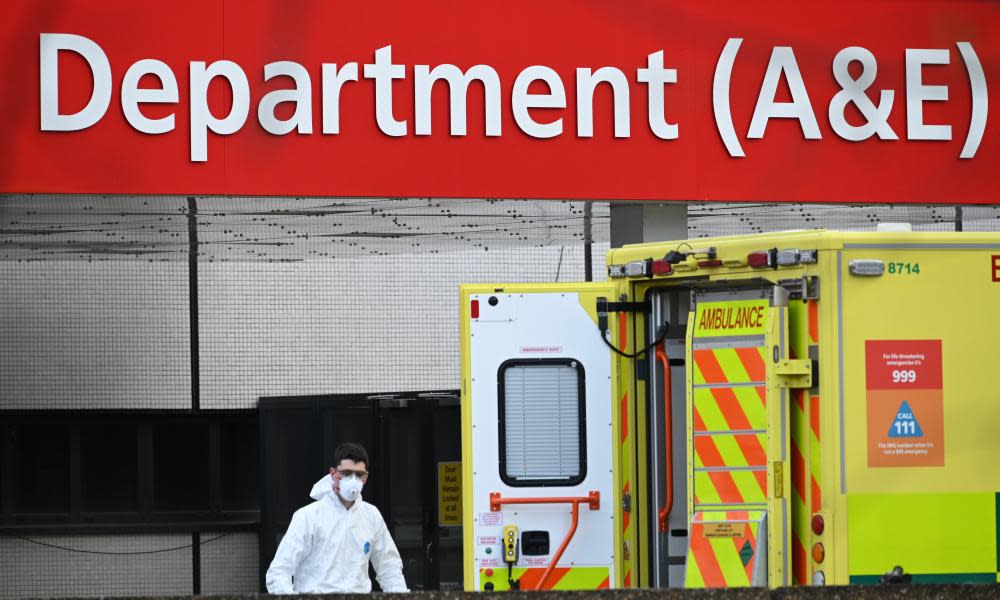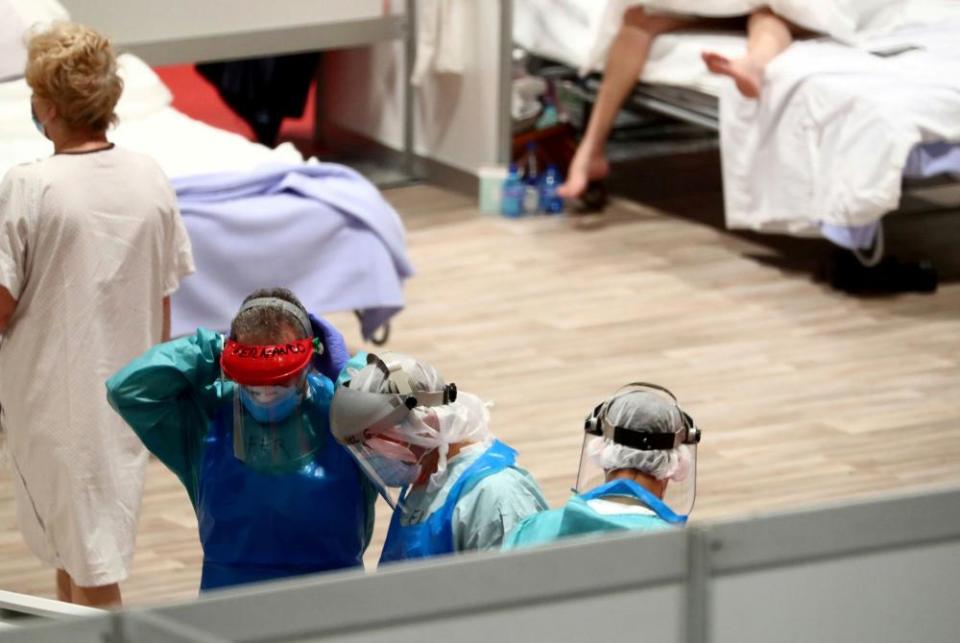‘The NHS needs them’: UK urged to join countries mobilising migrant medics

Campaigners have welcomed the relaxation of immigration restrictions by governments across Europe and the Americas to allow doctors, nurses and other key workers from refugee and migrant communities to join efforts against coronavirus.
And they urged countries still preventing medically-trained asylum seekers from working – including Britain – to follow suit
This week New Jersey became the second US state, after New York, to invoke emergency powers to temporarily relax restrictions on foreign-born medical professionals, helping health systems struggling to care for rising numbers of Covid-19 patients.
In Germany, hundreds of foreign doctors and nurses who don’t yet have licences to practice signed up to work, following callouts from local authorities who promised training. In Britain visas were this week extended for nearly 3,000 NHS workers from overseas, but hundreds more people are qualified but unable to practise , despite calls for the government and the General Medical Council (GMC) to fast-track their accreditation.
Related: ‘A beautiful thing’: the African migrants getting healthy food to Italians
Marta Foresti, director of the Overseas Development Institute, Europe, said the hostile environment towards migrants needed to end.
“Refugees and other migrants are exposed to great risks as a result of the pandemic. However many of them play a major role as doctors, nurses, delivery drivers and shelf stackers, all key to the response to the Covid pandemic. They are the vital, essential, fundamental key workers who will save our lives, often risking theirs.
“We should learn from this in the future, and recognise the value of all of us contributing to our societies and economies. Let this be the end of the hostile environment once and for all.”
In a blog she called An ode to key workers, Foresti wrote that, weeks before the government confirmed delivery drivers were key workers in the coronavirus response, the home secretary, Priti Patel, had unveiled plans for a new post-Brexit immigration bill aimed at reducing low-skill migration.

In Spain, the government announced plans last week to fast-track the status of 200 foreign-born doctors and nurses in the country, part of a series of measures put in place since a state of emergency was declared on 14 March. In France, health services can now recruit unverified refugee graduates who are qualified as doctors, dentists or pharmacists in their home countries. Groups of doctors from China, Albania, Cuba and Russia have travelled to Italy to help.
In Saxony, the heartland of the nationalist Alternative für Deutschland, which gained support in Germany last year over voter opposition to refugees, the regional medical board has had offers of help from more than 300 foreign-born medical professionals.
Knut Köhler of the Saxony medical chamber told the Guardian the number included 100 doctors whose licences to practice were not complete, including some from Syria. The number of Syrian doctors in Saxony has risen from 52 six years ago to 297 today, he said.
“It would normally take six months or longer to be registered and after that they work on probation. It is not an easy process. They have to get translations of all the documents from the clinics, do a medical language test.”
Köhler said on Tuesday that foreign doctors would be fast-tracked for training. They would be allowed to perform basic medical tasks and also help on the hotlines for Covid-19. Some of them will be paid, others not, he said.
“We have a lot of intensive care beds here, about 14,000, and around 1,500 corona patients, so we are comfortable now. But we will need doctors in three to four weeks.”

Gregory Maniatis, director of the international migration initiative at Open Society Foundations, one of the world’s largest human rights foundations, is facilitating efforts to allow qualified foreign-born healthcare professionals to help during the pandemic.
Authorities in Argentina and Colombia are preparing to tap into the large pool of medical professionals who have fled Venezuela, he said.
“Everyone who is qualified and willing to be mobilised should be mobilised,” Maniatis said. “It is not just refugees, but also immigrants, which is a big potential pool of people.”
There are an estimated 165,000 internationally-trained migrant healthcare professionals in the US, who are currently “under-utilised”, according to the Migration Policy Institute, and around a third of all doctors in the the US are foreign-born.
Last week the US state department announced it was looking to hire international medical staff to handle the increasing number of coronavirus cases in the country, urging specialists to get in touch with their nearest embassy.
Maniatis described the country’s call – with the president having been condemned for his anti-migrant rhetoric and policies – as an “enormous irony”.
“Before we shamelessly poach foreign doctors and nurses from abroad, let’s allow those already in the US to work.”
He hoped the recognition of the value of migrants would mark a “moment of solidarity, for people to think about how they deploy foreign-born doctors in their countries in times of crisis – and also over the longer term”.
In Australia, Mahdia Wazefadost, an asylum seeker and nurse on a temporary visa, appeared on a social media post appealing for access to medical and health services for all asylum seekers. In the film, Wazefadost said she was “privileged” to work as a nurse during the pandemic and urged: “We must keep our humanity alive.” She called for solidarity and said access to medical and health services should be ensured for all.
The UK government has focused on an appeal to return to the 15,500 doctors who have recently left the GMC register.
Dr Yasir Alsaadi, an Iraqi dermatologist living in London, is desperate to help: “We’ve seen foreign doctors in Germany and Italy signing up to help in the coronavirus response and even in the US they have invited doctors to contact the US embassy to apply for a visa.”
Alsaadi, 36, who has a masters degree in dermatology from the University of Hertfordshire, said: “But here in the UK, I have a visa, I just need a licence. Every hour the number of patients is increasing and the deaths are increasing and in the NHS there is a shortage of medics. The GMC has the power to increase registration. We need pressure on the health ministers, to put pressure on the GMC.”

Anna Jones, of RefuAid, which supports refugee professionals with language training and loans for accreditation, said she has 230 qualified doctors desperate to help. Jones has lobbied Matt Hancock, the health secretary, and the GMC to fast-track fully qualified overseas doctors and nurses into NHS jobs.
“One of our doctors here is thinking of going to Italy, because he said he can’t sit at home and not do anything. The public are saying ‘a lung is a lung, whether you are from Syria or Southampton’. The NHS needs them and we need them. We are asking the GMC to come up with a reduction in the criteria for registration.”

 Yahoo News
Yahoo News 
